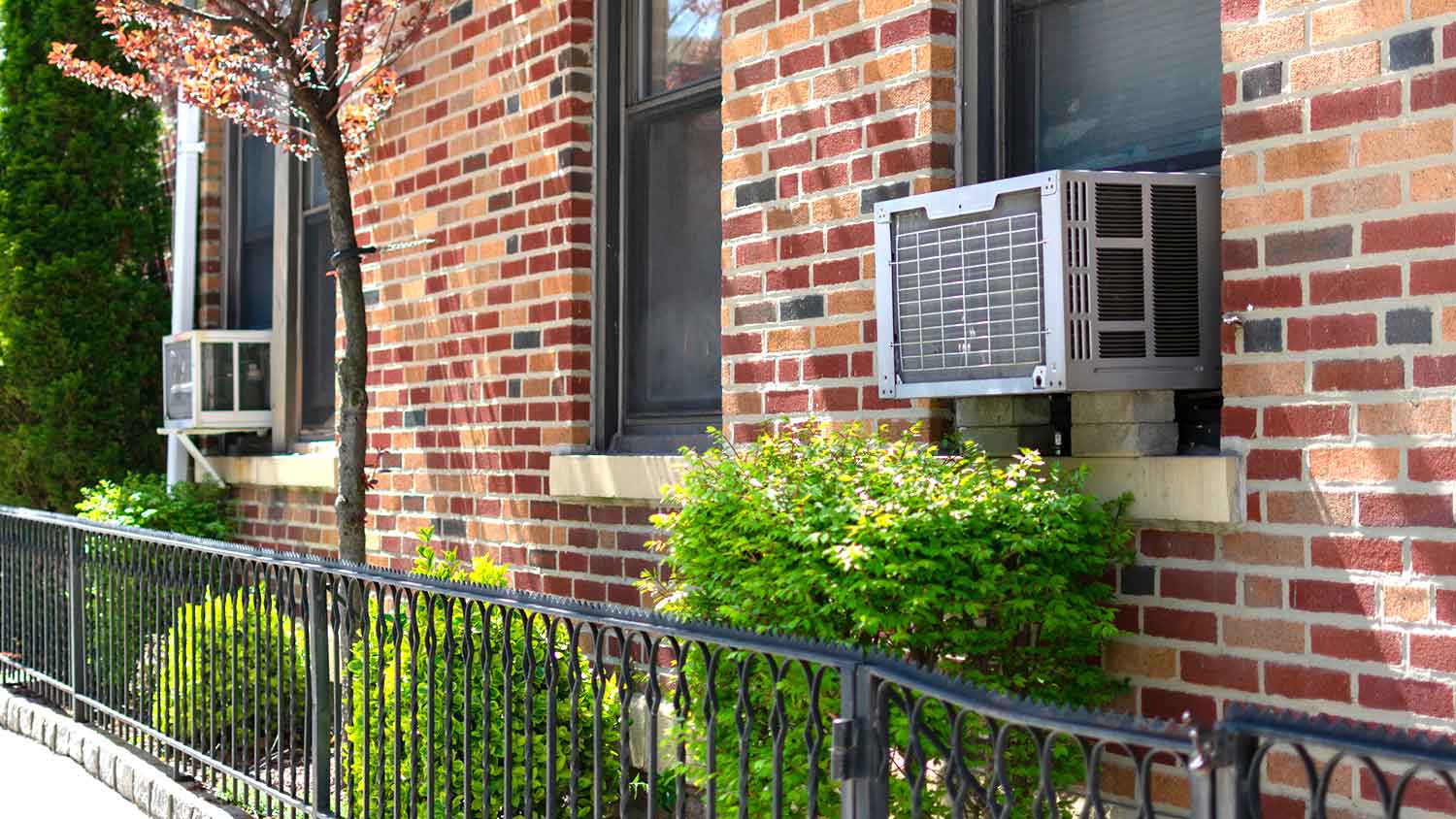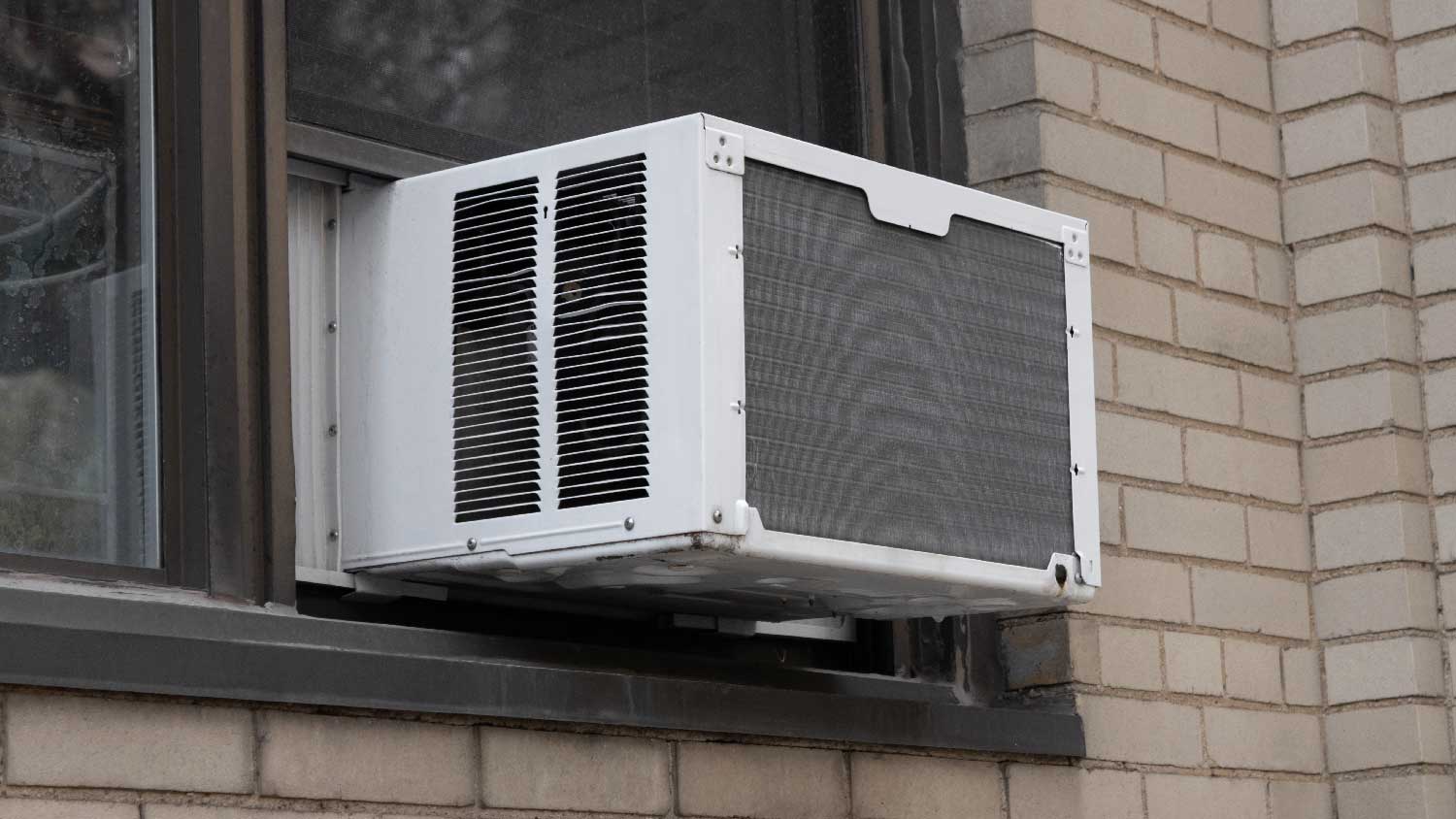
Need fascia and soffit repairs? Hiring a pro ensures proper installation, protects against pests, and prevents structural damage. Learn about common warning signs, material options, and how fascia and soffits safeguard your home from moisture.
Well water treatment systems cost an average of $2,300 installed


Well water treatment systems cost $2,300 on average, including equipment and installation.
Water quality, system size, and installation complexity affect pricing.
Basic sediment filters start at $200, while dull multi-stage systems can reach $8,000.
This article was created using automation technology and thoroughly fact-checked and edited by HomeAdvisor Editor Ryan Noonan.
Installing a well water treatment system costs between $1,200 and $3,600 on average, with homeowners spending an average of $2,300 for a complete setup with professional installation. The simplest filtration options begin at just $200, while comprehensive multi-stage systems addressing multiple water quality issues can reach $8,000 for larger properties. Your final price depends primarily on water contaminants present, household size, and installation requirements.
Properly sized systems ensure adequate water pressure even during peak usage times, but larger capacity units require more substantial equipment and installation work.
| System Size (GPM) | Household Size | Cost Range |
|---|---|---|
| 5 | 1–2 people | $400–$1,200 |
| 10 | 3–4 people | $1,200–$3,500 |
| 15 | 5+ people | $2,200–$5,800 |
| 20+ | Large homes, farms | $4,500–$10,000 |
A well water treatment system comprises specialized equipment designed to remove unwanted substances from private well water, making it safe and pleasant for household use. These systems target specific contaminants like iron, manganese, sulfur, bacteria, and sediment that commonly affect well water quality. Point-of-entry systems treat water as it enters your home, benefiting all fixtures, while point-of-use options focus on single locations such as kitchen sinks or showers.
| System Type | Description | Cost Range |
|---|---|---|
| Sediment filter | Removes sand, dirt, and debris | $100–$800 |
| Water softener | Removes calcium, magnesium that cause scale | $800–$2,800 |
| Carbon filter | Reduces chlorine, odors, chemicals | $250–$1,500 |
| Iron filter | Removes iron and manganese | $900–$4,000 |
| UV purification | Disinfect bacteria and pathogens | $600–$2,200 |
| Reverse osmosis | Broad contaminant filtration | $1,500–$6,000 |
| Multi-stage | Combines several treatment methods | $2,500–$10,000 |
Entry-level filtration solutions range from $100 to $800 and include simple sediment screens or basic carbon filters. These systems effectively remove particles, some tastes, and odors but have limitations when addressing harder-to-treat contaminants like bacteria or dissolved minerals.
These specialized systems combat rust stains, metallic taste, and hydrogen sulfide odors through oxidation processes. Expect to invest $900 to $4,000 for a quality system that effectively addresses these common well water complaints.
Water softening units remove calcium and magnesium that cause scale buildup and soap performance issues. With prices ranging from $800 to $2,800, these systems protect plumbing fixtures and appliances while improving water's interaction with soaps and detergents.
Ultraviolet light technology neutralizes microorganisms without chemicals. Water purifying systems cost $600 to $2,200 and provide an effective barrier against harmful bacteria and viruses in well water.
RO systems force water through a semi-permeable membrane to remove contaminants down to microscopic levels. Whole-house systems range from $1,500 to $6,000 depending on capacity and features.
These initial filtration components trap particulates before they reach more sensitive treatment stages. With costs between $100 and $800, they serve as a crucial first line of defense in most multi-stage systems.
Comprehensive treatment packages cost between $2,500 and $10,000 and integrate multiple technologies like sediment pre-filtration, water softening, iron removal, ultraviolet purification, and possibly reverse osmosis to address complex water quality challenges simultaneously.Well
Several key elements influence the final price of your well water treatment system.
Modifications to existing plumbing, electrical requirements, space constraints, and permit fees contribute to installation costs. Labor runs $50 to $150 per hour with minimum service fees of $100 to $300 for most water treatment and softener installers.
Your region affects pricing through varying contractor rates, material transportation costs, and local water quality challenges. Rural locations may face higher costs due to travel charges, while certain regions with specific water issues might require specialized equipment.
The initial purchase represents only part of your investment in clean water. Plan for these ongoing costs:
Filter replacements: $30–$200
Water quality tests: $50–$300
Salt/chemical treatments: $40–$120
DIY well water treatment system installation saves on professional labor costs, but it requires in-depth plumbing knowledge, specialized tools, and local plumbing code familiarity. Mistakes can result in anything from minor leaks to serious contamination risks with health hazards and fines.
Professional installers ensure your system meets local building codes and operates safely, preventing water damage, contamination issues, or electrical hazards that could result from improper setup. Many manufacturers only honor warranties when certified professionals handle the installation, providing valuable protection for your investment and access to technical support.
Use these cost-saving strategies to keep your well water treatment system installation costs within your budget:
Obtain multiple estimates from qualified professionals to ensure competitive pricing.
Research manufacturer rebates or local water quality incentives that might offset initial costs.
While complex installation should be left to professionals, homeowners can often handle routine maintenance like filter changes to reduce service calls and extend system life.
Carefully research your system size and type to avoid overpaying for unnecessary features.
No place is more important than your home, which is why HomeAdvisor connects homeowners with local pros to transform their houses into homes they love. To help homeowners prepare for their next project, HomeAdvisor provides readers with accurate cost data and follows strict editorial guidelines. After a project is complete, we survey real customers about the costs to develop the pricing data you see, so you can make the best decisions for you and your home. We pair this data with research from reputable sources, including the U.S. Bureau of Labor Statistics, academic journals, market studies, and interviews with industry experts—all to ensure our prices reflect real-world projects.
From average costs to expert advice, get all the answers you need to get your job done.

Need fascia and soffit repairs? Hiring a pro ensures proper installation, protects against pests, and prevents structural damage. Learn about common warning signs, material options, and how fascia and soffits safeguard your home from moisture.

Who installs window AC units? Learn why HVAC technicians are the pros to call, when handypeople fit, and how pros complete safe installations

Wondering who fixes window AC units? Learn whether to call an AC repair company or an appliance repair pro, plus how repairs get done.

Unsure who to hire to test for lead paint? Learn whether to call a lead testing specialist or contractor and what to expect.

Learn how to find and hire a handyman you can count on with this handy guide.

Learn how to find and hire painters, plus 10 questions you should always ask before choosing a pro.